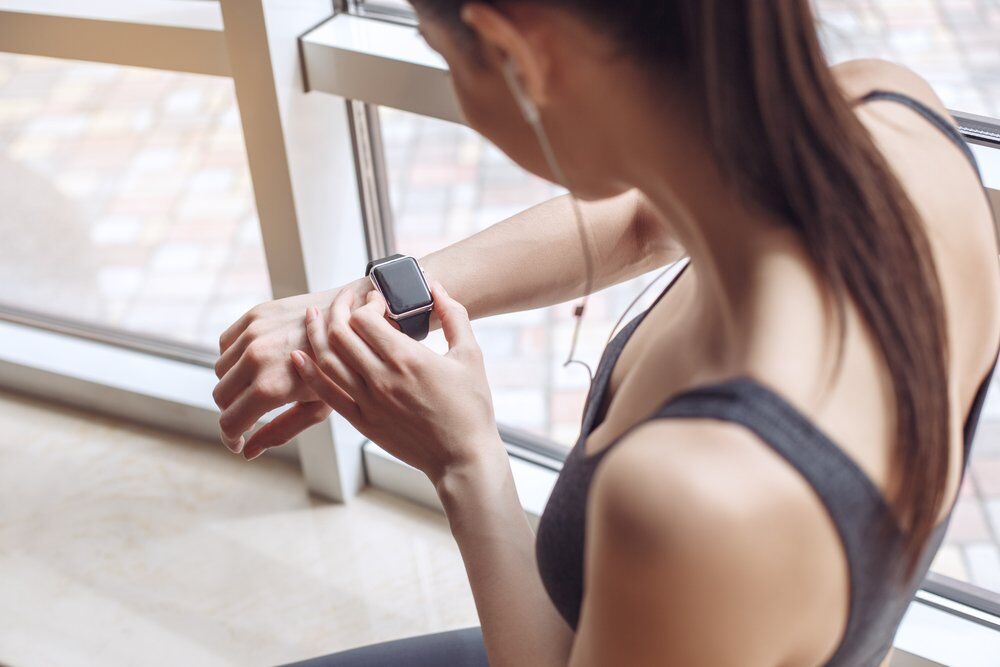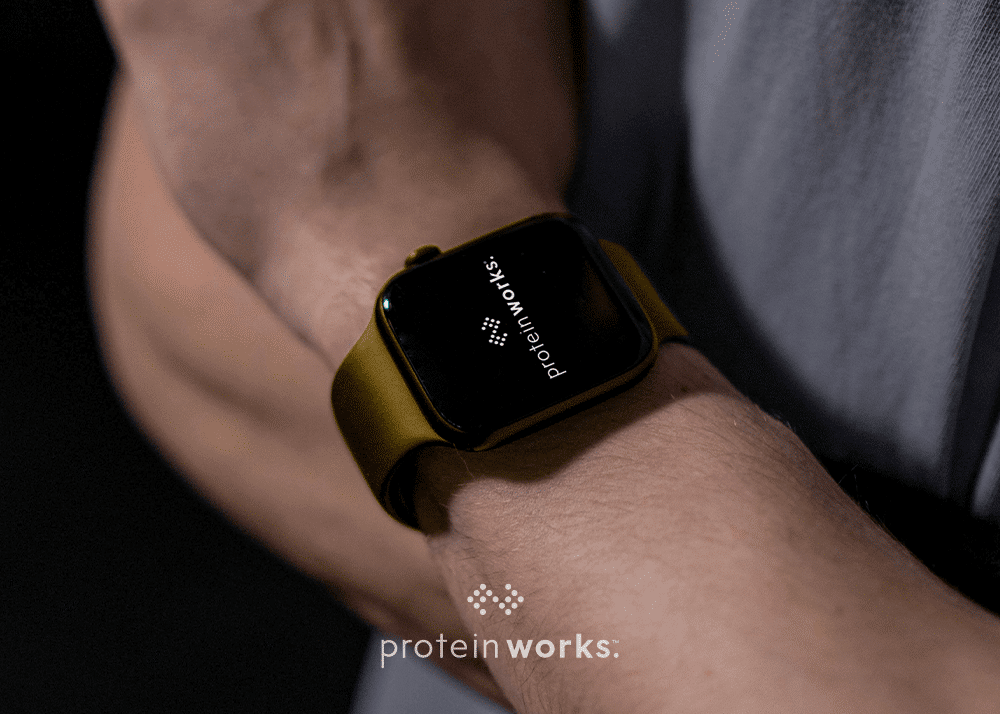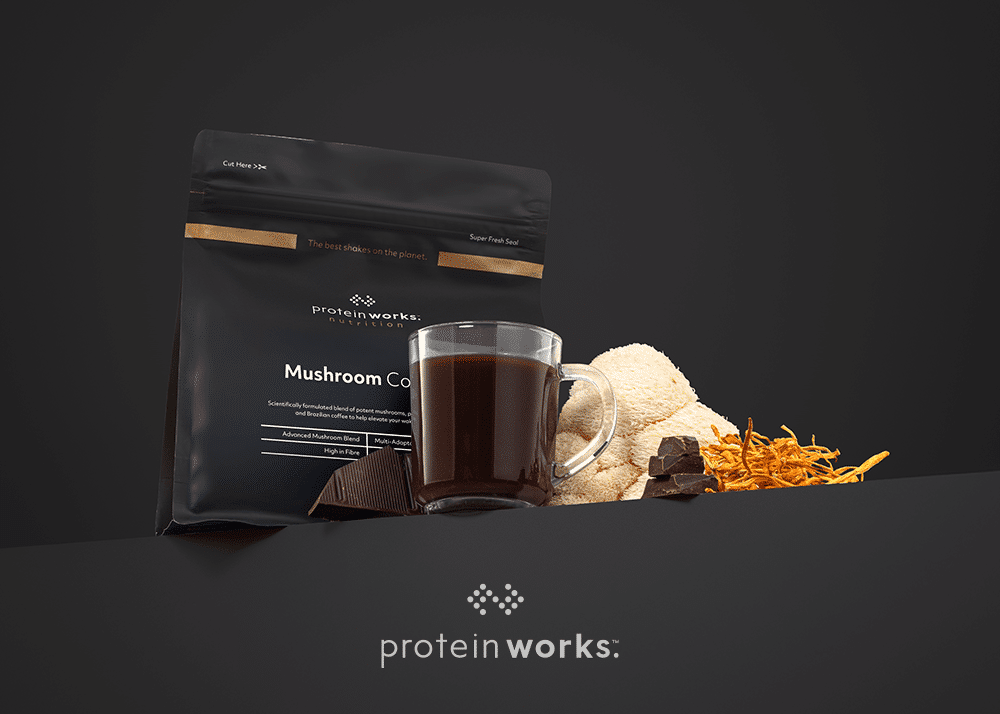
Can Fitness Trackers Detect Illnesses?
Gone are the days of strapping a pedometer to your belt as the only option for tracking your activity. Wearable technology is the number one fitness trend of 2020. By 2023, the market is estimated to be worth half a billion pounds. (1)
Logging daily activity has never been easier. Wearable smartwatches and fitness trackers are a simple way to measure physical activity. From body temperature and heart rate to step counts and sleep quality, you can access your daily data at the touch of a button. It’s no wonder that one in five adults has one. (2)
Not only is the data a great motivator, but researchers also use it to better understand how lifestyles can impact health. (3) But can fitness trackers actually detect illnesses?
On the pulse of fitness
A number of wearable fitness trackers use a technology called photoplethysmography to track heart rate. The monitor shines a green light onto your skin and analyses the light that gets refracted back by the blood surging as your heart beats. (4)
One study found that this data could show an irregular heartbeat and “Heart rates that aren’t caused by exertion need to be explained,” says Felipe Lobelo, an associate professor at the Rollins School of Public Health at Emory University in Atlanta. (5) Another recent study found that Apple Watch’s Heart App was about 84% accurate in detecting irregular heartbeats that could lead to more serious health conditions. (6)
Another study found that combining the heart rate data with sleep data from fitness trackers can predict flu in real-time better than current surveillance methods. Dr Rosalind Eggo, Assistant Professor in Public Health Epidemiology at the London School of Hygiene & Tropical Medicine, said, “Wearable technologies have promise to provide new data sources for tracking infectious diseases such as influenza. However, it is critical to fully understand the strengths and weaknesses of these types of data before relying on them for monitoring infectious diseases. Further analysis is required to gauge how reliable these data are over time.” (7)
Sweet dreams
Sleep tracking records how long you sleep and the quality of your sleep, such as deep, light, and REM. As such they’re useful in helping you recognise patterns in your bedtime habits.
“While digital apps and devices can’t replace formal testing,” says sleep medicine expert Colleen Lance, MD, “they can give your doctor a general idea of your total sleep time, your sleep/wake cycle and how disruptive your sleep may be.” (8) So although the data may not be able to detect the cause of any interrupted sleep, it can help medical professionals decide if further investigation is required.
On the right track
One of the most popular features of wearable technology is the ease of tracking activity. Around 80% of Apple Watch owners use the device for fitness tracking according to a survey by the advertising technology company, Fluent, and since Fitbit was launched in 2007, a phenomenal 202 trillion steps have been logged. (9)
New research suggests that taking note of daily fitness levels via fitness trackers could potentially help doctors diagnose serious conditions in patients. The data recorded was found to be as reliable as the data collected in more traditional techniques such as a six-minute walking test, commonly used to diagnose lung and cardiovascular conditions. Researchers at Intermountain Healthcare in Salt Lake City said that another benefit of fitness tracker data was that the patients didn’t have to complete the test in a medical setting. (10)
The future of fitness
Although it’s relatively early days in the field of fitness trackers as illness detectors, there’s evidence to suggest wearable technology will be an integral part of the future of healthcare.
The NHS plans to integrate data from wearable devices and lifestyle apps into the NHS app by 2021 (11) and the Salford Royal NHS Foundation Trust said wearable data on patients’ heart rate, sleep and exercise could help clinicians adjust medication based on a patient’s metabolism. (12) Private healthcare providers are also on board with fitness tracker technology, such as UK private health insurer Vitality who subsidise the cost of Apple Watches for those undertaking a set amount of activity.
Fitbit is testing new features which could help detect early signs of diabetes, heart disease and life-threatening conditions (13) and a study from Standford University suggests that in the near future we may be able to predict illness from wearable data such as heart rate, skin temperature, and sleep. (14) Other new technologies that could soon be making an appearance on your wearable device, include sensors that monitor and analyse sweat (15) and track blood glucose levels. (16)
Until then, Harvard-trained integrative medicine doctor and author Akil Palanisamy, MD recommends that wearable data shouldn’t be treated as a substitute for a traditional visit to the doctor. (17)
References
(1) https://www.thisismoney.co.uk/money/bills/article-7999631/Can-Fitbit-help-lose-weight-improve-fitness.html
(2) Soultana Macridis, Nora Johnston, Steven Johnson, Jeff K. Vallance. Consumer physical activity tracking device ownership and use among a population-based sample of adults. Published: January 2, 2018
(3) https://allofus.nih.gov/news-events-and-media/announcements/all-us-research-program-expands-data-collection-efforts-fitbit
(4) https://theconversation.com/tracking-your-heart-rate-5-questions-answered-about-what-that-number-really-means-124066
(5) https://www.considerable.com/home/technology/5-dangerous-health-problems-your-fitness-tracker-might-pick-up/
(6) Marco V. Perez, M.D., Kenneth W. Mahaffey, M.D., Haley Hedlin, Ph.D., John S. Rumsfeld, M.D., Ph.D., Ariadna Garcia, M.S., Todd Ferris, M.D., Vidhya Balasubramanian, M.S., Andrea M. Russo, M.D., Amol Rajmane, M.D., Lauren Cheung, M.D., Grace Hung, M.S., Justin Lee, M.P.H., et al., for the Apple Heart Study Investigators. Large-Scale Assessment of a Smartwatch to Identify Atrial Fibrillation. 2019
(7) Jennifer M Radin, Nathan E Wineinger, Eric J Topol, Steven R Steinhubl. The Lancet Digital Health. Harnessing wearable device data to improve state-level real-time surveillance of influenza-like illness in the USA: a population-based study. DOI: 10.1016/S2589-7500
(8) https://health.clevelandclinic.org/3-reasons-to-track-your-sleep-on-an-app-or-wearable-device/
(9) https://www.thisismoney.co.uk/money/bills/article-7999631/Can-Fitbit-help-lose-weight-improve-fitness.html
(10) https://collegeofmedicine.org.uk/technology-such-as-fitness-trackers-can-provide-better-health-insights-for-doctors-research-finds/
(11) https://topol.hee.nhs.uk/wp-content/uploads/HEE-Topol-Review-2019.pdf
(12) https://www.zdnet.com/article/smart-watches-fitness-trackers-and-the-nhs-are-wearables-just-what-the-doctor/
(13) https://www.forbes.com/sites/insights-teradata/2019/10/01/can-a-fitness-tracker-save-your-life/#6309ba6a47a2
(14) Xiao Li, Jessilyn Dunn, Denis Salins, Gao Zhou, Wenyu Zhou, Sophia Miryam Schüssler-Fiorenza Rose, Dalia Perelman, Elizabeth Colbert, Ryan Runge, Shannon Rego, Ria Sonecha, Somalee Datta, Tracey McLaughlin, Michael P. Snyder. Digital Health: Tracking Physiomes and Activity Using Wearable Biosensors Reveals Useful Health-Related Information. January 12, 2017
(15) ttps://news.berkeley.edu/2019/08/16/wearable-sensors-detect-whats-in-your-sweat/
(16) https://www.igi-global.com/chapter/wearable-technologies-for-glucose-monitoring/234025
(17) https://www.wellandgood.com/fitness-tracker-accuracy/






No Comments yet!